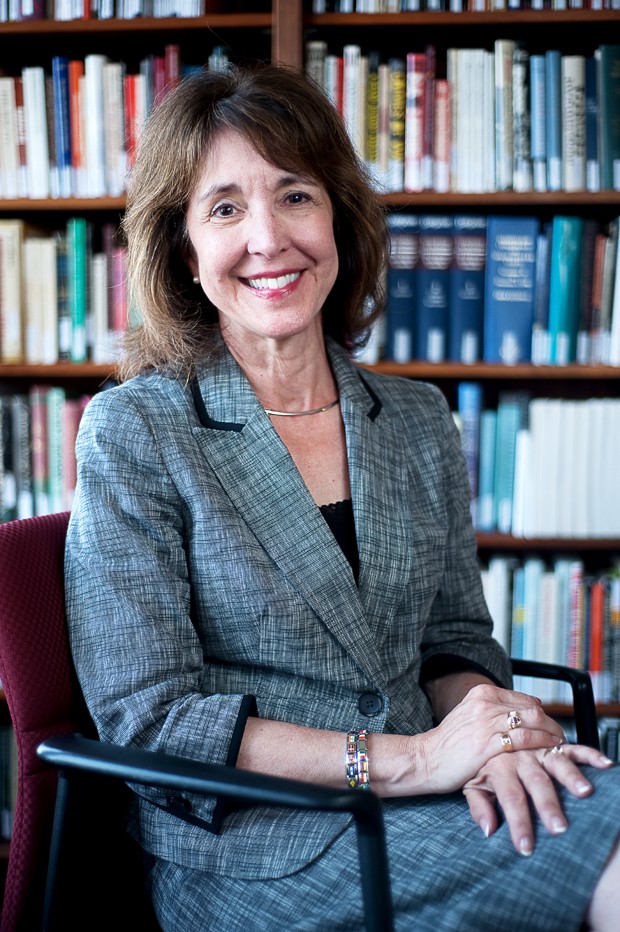When Ellen Kennedy saw tables covered with human skulls on a trip to Rwanda in June 2005, she began crying. Her guide, local Rwandan Alice Musabende , said, âÄúEllen, you donâÄôt have to look at this. This isnâÄôt your problem. This is our problem.âÄù That statement changed her life. The skulls were remnants of the 1994 genocide that killed hundreds of thousands of Rwandans, including MusabendeâÄôs entire family when she was 14. Kennedy thought about those words for weeks after she got home. She decided that Musabende was wrong. During the summer of 2005, Kennedy began speaking at rotary clubs about the Rwandan genocide. Then, in January 2006, she founded the Genocide Intervention Network-Minnesota , a division of the national organization, to educate the community and enable advocacy for the crisis in Darfur, which the United States government has labeled genocide. âÄúI decided that Alice was wrong, that not only is it my problem, itâÄôs everybodyâÄôs problem,âÄù Kennedy said. âÄúThe world cannot stand by while these kinds of mass atrocities happen.âÄù Since then, Kennedy retired from the University of St. Thomas in 2007 and transferred to the University of MinnesotaâÄôs Center for Holocaust and Genocide Studies , at which she became the interim director in March 2008 after the death of the former director. Kennedy has doctorate degrees in marketing and sociology from the University of Minnesota. At the Genocide Intervention Network-Minnesota, Kennedy works to educate people and promote activism. She also helps to raise money to provide protection for those in Darfur. âÄúIt has really grown in terms of our outreach throughout Minnesota as well as beyond Minnesota,âÄù Kennedy said. Kennedy teaches her interns at Genocide Intervention Network-Minnesota about education, advocacy and fundraising. One of her previous interns, Anna Donnelly , former co-chair of the UniversityâÄôs chapter of STAND: A Student Anti-Genocide Coalition âÄï which Kennedy advises âÄï nominated Kennedy for the Anne Frank Center âÄôs Spirit of Anne Frank Award in April because Kennedy was such an inspiration to her. âÄúImmediately the first person I thought of was Ellen,âÄù Donnelly said. âÄúShe really, truly embodies the spirit of Anne Frank. She is working to try and move other people, other citizens, to give them the tools to have a hand in trying to stop genocide.âÄù Kennedy didnâÄôt think she would win, so she was moved when the center informed her she won the Outstanding Citizen Award. âÄúSheâÄôs a perfect fit,âÄù Donnelly said. âÄúSheâÄôs done so much at the citizen level for everyone.âÄù Some of the work for which Kennedy was recognized includes speeches at rotary clubs throughout the Midwest about the historical context of genocide and what people can do, like sponsoring events to raise awareness on the genocide in Darfur. Kennedy also helped produce a documentary called âÄúGenocide Again: DarfurâÄù with Twin Cities Public Television and the UniversityâÄôs Center for Holocaust and Genocide Studies. She said some of her most important work is with the movement to remove state and city public funds from companies that are involved in funding the Sudanese government’s genocidal actions. In 2007, Kennedy helped lobby state legislators, making Minnesota the 13th state to pass a divestment bill, which she said sold off all investments in companies believed to be supporting Sudanese genocide . Kennedy has also done work with the Guthrie Theater , putting together discussions and workshops for plays related to her work. Sheila Livingston , director of artistic relations at the Guthrie, said she has worked with Kennedy on several plays, including âÄúAfter a Hundred Years âÄù in June 2008 . Before the play, survivors from the Cambodian genocide and educators spoke at the workshop put together by Kennedy and Livingston. After the play, Kennedy participated in a discussion. âÄúItâÄôs really been a wonderful opportunity to take a play and really build around it, giving people background information and making it so much more real,âÄù Livingston said. âÄúSheâÄôs an extremely committed person, passionate about justice for everyone around the world.âÄù Sarah Karon , board member of Genocide Intervention Network-Minnesota, said sheâÄôs on the board because she believes in the cause, but Kennedy gives it energy and momentum. âÄúSheâÄôs good at inspiring people and creating possibilities,âÄù she said. âÄúIâÄôve never met anyone quite like Ellen in my life before. IâÄôve known a lot of educators, and I think she has a really unique gift. She brings it down to a personal level and helps everyone understand why itâÄôs important to them and why they should get engaged.âÄù Kennedy is passionate about her work. She said everyone has a moral obligation to stand up against genocide, and she can look back on her trip to Rwanda knowing she did. âÄúI talk about Alice all the time,âÄù Kennedy said. âÄúI talk about what happened to her family all the time. And sheâÄôs very grateful because she feels itâÄôs the only way that she can know that her family didnâÄôt die in vain.âÄù

Image by Jules Ameel
Interim Director of the U of M Center for Holocaust and Genocide Studies Ellen Kennedy won the Anne Frank Outstanding Citizen Award by raising awareness and enabling advocacy about recent genocides.
University director raises awareness on genocides
Dr. Ellen Kennedy recently won the Anne Frank Center ’s Outstanding Citizen Award for her work.
Published August 4, 2009
0

